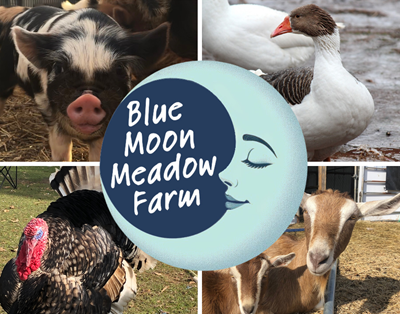 Kune Kune pigs came on our radar when we decided that having cattle on our little farm would likely never happen due to their size and demand on the pasture. In search of another farm critter that would work with the dairy goats we have had for years, this smallish breed of pig seemed a natural. Kune Kune are known for being docile, not particularly keen on testing fencing and not as prone to rooting as many other breeds. We are able to run a number of this pleasant piggies on our half acre pastures without worry that they will plow them up, and in fact their presence has actually improved the pastures. For a micro farm of about 2.5 acres, we are fiercely protective of our pastures, as they are the backbone of our operation. The fact that these pigs don’t destroy our pastures allows us to not only let them wander around the farm instead of remaining in pens but also allows us to grow them out to an older age, which is a HUGE plus.
Kune Kune pigs came on our radar when we decided that having cattle on our little farm would likely never happen due to their size and demand on the pasture. In search of another farm critter that would work with the dairy goats we have had for years, this smallish breed of pig seemed a natural. Kune Kune are known for being docile, not particularly keen on testing fencing and not as prone to rooting as many other breeds. We are able to run a number of this pleasant piggies on our half acre pastures without worry that they will plow them up, and in fact their presence has actually improved the pastures. For a micro farm of about 2.5 acres, we are fiercely protective of our pastures, as they are the backbone of our operation. The fact that these pigs don’t destroy our pastures allows us to not only let them wander around the farm instead of remaining in pens but also allows us to grow them out to an older age, which is a HUGE plus.
As far as producing pork is concerned, Kune Kune are not only smaller than more commercially viable breeds at a mature weight of 200-300 lbs by around two years of age, but they grow slower. We process at around 12-18 months, when they reach a weight of about 180-200lbs. Most other pork producing breeds reach this weight between 6-8 months of age and are processed at that time. The Kune Kune’s smaller size means smaller cuts, which is a plus for folks who don’t want a pork chop that fills the whole plate. The meat is deep red, well marbled and to us more reminiscent of beef more than pork.
In our experience, meat from older animals has more flavor. Folks often mention how bland the pale supermarket pork is. One reason is that the animals are processed at such a young age. Think about veal, which is milk fed baby beef. This pale meat is known for a delicate and milder (or some might say weak) flavor that is distinctly different from the meat of older animals. The older age at which we process our pork means the meat has had time to develop more complex flavors. The meat to fat ratio of Kune Kune pork makes it ideal for sausage and charcuterie, and the lard not only is a pleasure to cook with, but makes fabulous soaps and skin care products.
For us, raising pigs isn’t about growing them out as fast as possible at the lowest cost. It’s about raising happy pigs that grow slow and make the tastiest pork we’ve ever had. Sometimes slow and steady wins the race, and with Kune Kune pigs we believe we have a winner.

